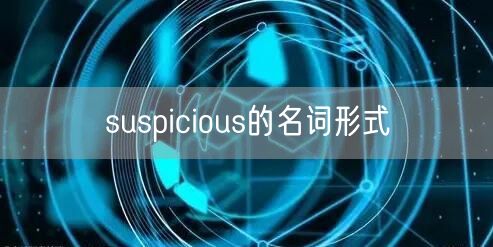Suspicion, the noun form of "suspicious," is a powerful emotion that can shape our perceptions and decisions. It often arises when we sense something amiss or when trust falters. This article delves into the nature of suspicion, its psychological underpinnings, societal implications, and how it affects personal relationships.
Understanding Suspicion: A Psychological Perspective
Suspicion is deeply rooted in human psychology. At its core, it serves as a protective mechanism—an instinctive response to perceived threats or inconsistencies. When individuals detect discrepancies in behavior, actions, or information, suspicion naturally arises. For instance, if someone notices their colleague acting secretive or avoiding direct answers, suspicion may creep in, prompting further investigation.
From an evolutionary standpoint, suspicion helped early humans survive by encouraging vigilance against potential dangers. In modern times, however, unchecked suspicion can lead to paranoia or strained relationships. Psychologists argue that while suspicion itself isn’t inherently negative, excessive or unwarranted suspicion can harm both mental health and interpersonal dynamics.
Societal Implications of Suspicion
On a broader scale, suspicion plays a significant role in shaping societies. Governments, for example, rely on public suspicion to enforce laws and maintain order. Surveillance systems, background checks, and security measures are all manifestations of institutionalized suspicion aimed at protecting citizens from potential threats. However, this same suspicion, when misapplied, can infringe upon privacy rights and foster distrust between communities.
In media and politics, suspicion often fuels debates and drives narratives. Conspiracy theories thrive on collective suspicion, where groups question official explanations and seek alternative truths. While skepticism is healthy and encourages critical thinking, baseless suspicion can erode social cohesion and perpetuate division.
Suspicion in Personal Relationships
At an individual level, suspicion profoundly impacts personal relationships. Whether it’s romantic partnerships, friendships, or familial bonds, suspicion can either strengthen or weaken connections depending on its context and management. Healthy suspicion manifests as curiosity or concern, prompting open communication and clarification. Conversely, unhealthy suspicion stems from jealousy, insecurity, or past betrayals, leading to accusations, defensiveness, and conflict.
For couples, managing suspicion requires transparency and trust-building efforts. Regular check-ins, setting clear expectations, and addressing concerns promptly can mitigate unnecessary suspicions. Similarly, in professional settings, fostering a culture of accountability and openness reduces suspicion among coworkers and enhances collaboration.
Overcoming Excessive Suspicion

While suspicion has its merits, excessive forms can be detrimental. To address this, individuals must cultivate self-awareness and emotional intelligence. Recognizing patterns of overthinking or jumping to conclusions is the first step toward combating irrational suspicion. Techniques such as mindfulness, cognitive-behavioral therapy (CBT), and journaling can help reframe negative thought processes and promote rational thinking.
Moreover, building strong support networks contributes to reducing suspicion. Surrounding oneself with trustworthy friends, mentors, or counselors provides perspective and reassurance during moments of doubt. Education also plays a vital role in curbing unfounded suspicion; learning about logical fallacies, bias, and evidence-based reasoning equips people to evaluate situations more objectively.
Conclusion: Striking a Balance
Suspicion, like many emotions, exists on a spectrum. While it serves as a valuable tool for detecting anomalies and ensuring safety, unchecked suspicion can distort reality and damage relationships. By understanding its origins, acknowledging its effects, and practicing effective strategies, individuals and societies alike can harness suspicion constructively rather than allowing it to consume them. Ultimately, balancing suspicion with empathy, trust, and critical thinking paves the way for healthier interactions and more harmonious communities.
文章声明:以上内容(如有图片或视频亦包括在内)除非注明,否则均为腾飞百科原创文章,转载或复制请以超链接形式并注明出处。

